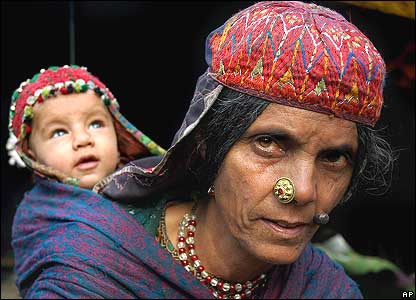SRINAGAR, Oct 7: Members of Jammu and Kashmir’s Gujjar and bakerwal community – who live a nomadic lifestyle migrating to and from the upper reaches along with cattle – have urged authorities to formulate immediate plans to protect their tribal identity, which they say was undergoing fast dilution.
Around 39 percent of Gujjars, who are migratory by tradition have relinquished their nomadic lifestyle during the last 23 years of conflict involving militants and security forces, due to restrictions on their movement in the upper reaches of Himalayan region, a study has revealed.
The nomad gujjars are known to take their sheep high into the mountains, above the tree-line, to graze in the lush meadows in summers. As they switch places, looking for greener pastures, they eventually move back to the plains where they sell their sheep, often as sacrificial animals to Muslims around the Eid al-Zuha festival.
After closure of Kashmir’s forests in mid-nineties, thousands of nomads relinquished their lifestyle and settled down in plains to work as labourers, the study says.
“There is a great apprehension that the tribal migration will become a history of the past in next few decades. In 2009 the decline ratio was 37%,” Dr. Javaid Rahi, National Secretary of Tribal Foundation said.
With violence in the region now declining, the survey by Tribal Research and Cultural Foundation – a national organization working on Gujjars of Indian states – has suggested basic education, health and communication facilities besides lifting restrictions on movement to protect tribal life and boost the economy of these Gujjars and Bakerwals.
Rahi has also urged authorities to formulate a disaster management policy to help the nomads during loss of livestock due to landslide, forest fire and other natural calamities.











